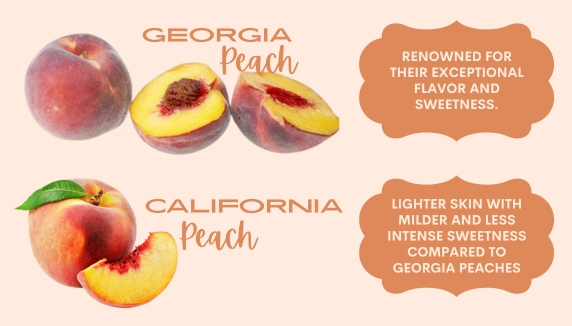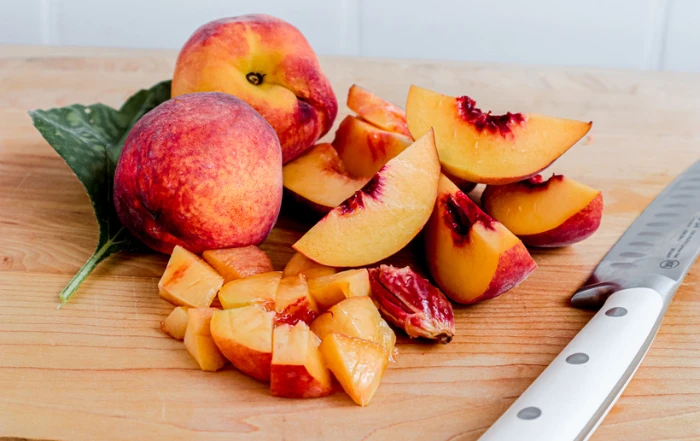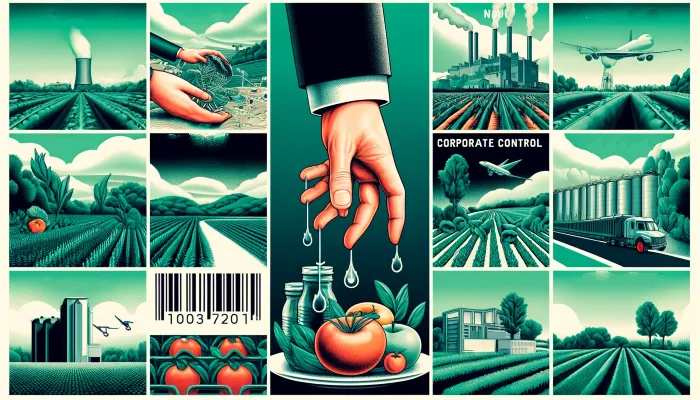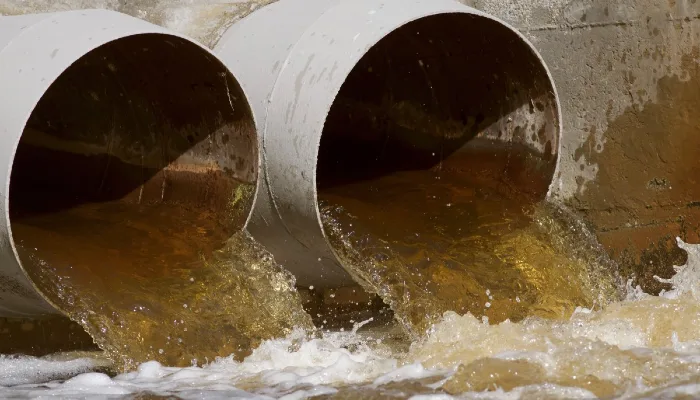Peaches and Georgia have long shared a deep-rooted connection, but as climate change poses new challenges, growers and researchers are determined to safeguard the state’s renowned peach industry.
From the nostalgia of riding through orchards to the complexities of adapting to a shifting climate, Georgia’s farmers are resilient in their pursuit of preserving the legacy of growing this beloved fruit.
In this article, we delve into the evolving landscape of Georgia peaches, explore the obstacles they face, and discover the innovative approaches being employed to ensure their continued success.
The Changing Dynamics
Despite its reputation as the “Peach State,” peaches no longer claim the title of Georgia’s largest fruit crop; that distinction now belongs to blueberries.
Nevertheless, peaches remain an integral part of the state’s identity, adorning license plates, “I Voted” stickers, and even inspiring an annual festival.
In the heart of Fort Valley, where many of Georgia’s peach farms are concentrated, growers like Pearson Farm and Lane Southern Orchards have diversified their crops to include pecans, providing a strategic balance to mitigate uncertainties and fluctuations in profitability.
Georgia Farmers Face The Challenges of a Shifting Climate
Peach trees require a specific number of chill hours, where temperatures range between 32 and 45 degrees Fahrenheit, during their dormant phase each year.
However, Georgia’s warming trend and increasingly variable winters have disrupted the accumulation of these crucial chill hours.
The changing climate poses a threat to peach production as insufficient chill hours result in reduced flower production, ultimately impacting the yield of peaches.
Additionally, the rise in humidity has contributed to the proliferation of fungal diseases on peach trees, affecting photosynthesis and sugar content in the fruit.
Adapting Through Research and Technology
Georgia’s farmers are resilient, adapting to the challenges by seeking guidance from experts such as Pam Knox, an agricultural climatologist at the University of Georgia. The UGA Weather Network provides valuable data to farmers, allowing them to monitor their plants’ growth stages, anticipate frost risks, and make informed decisions based on temperature, precipitation, and other vital factors.
Furthermore, researchers like Dario Chavez are developing peach varieties that require fewer chill hours, drawing inspiration from successful ventures in Florida.
Chavez’s experiments with nanocellulose, a plant-derived protective coating sprayed on buds, offer promising possibilities for earlier blooming in response to warmer winters.

A Paradigm Shift
Amidst the changing landscape, a paradigm shift is occurring in the perception of Georgia peaches.
Rather than aiming to be the nation’s top producer, growers like Pearson emphasize the importance of quality over quantity.
Recognizing the challenges posed by California’s milder climate and visually vibrant peaches, Georgia farmers prioritize the delightful taste and eating experience their peaches offer.
This shift allows for a renewed focus on cultivating exceptional peaches that satisfy the palates of consumers, ensuring the long-term viability of the industry.
A Resilient Georgia Future
While the uncertainties of climate change persist, the peach industry in Georgia remains resilient.
Expert voices, like Chavez, express confidence in the adaptability of peach growers, acknowledging their ability to overcome various climate-related obstacles.
The Southeastern peach growers, including those in Florida, possess a deep understanding of the complexities of their craft, equating them to artists who skillfully navigate challenges and find innovative solutions.
With a steadfast commitment to their craft, Georgia’s peach industry stands poised to weather the storms and sustain its presence for generations to come.
As Georgia’s peach industry navigates the challenges presented by a changing climate, dedicated farmers and researchers are determined to preserve the state’s rich peach-growing heritage.
More To Discover
- DOE Analysis Reveals Geothermal Heat Pumps Are A Key to a Sustainable Future
- The United Arab Emirates Just Took Over Entire Forests in Africa To Greenwash Their Way To Carbon Credits
- Microplastics in the Clouds: New Study Reveals Potential Threat to Global Weather Patterns
- Dubai Floods Expose Global Failure in Urban Drainage Amid Climate Crisis
By leveraging technological advancements, conducting vital research, and embracing a shift towards quality-focused cultivation, Georgia peaches are poised to thrive despite the obstacles.
With an enduring commitment to adaptability and a passion for producing exceptional fruit, the future of Georgia peaches shines bright, ensuring that this iconic crop will continue to grace tables and tantalize taste buds for years to come.




















